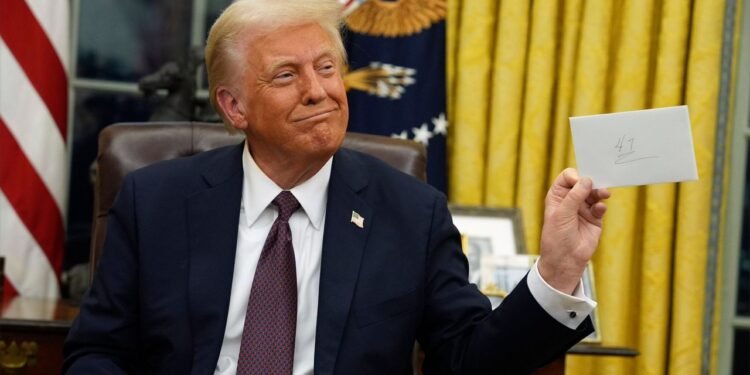By Charles Igwe
On his first day back in office, Donald Trump signed a series of executive orders, including one that defines gender strictly as male or female. The policy eliminates federal recognition and funding for gender identities beyond these two categories, a decision the administration has branded as “common sense.”
During his inaugural address, Mr. Trump confirmed the new policy, stating, “As of today, it will henceforth be the official policy of the United States government that there are only two genders, male and female.”
Under the order, gender will be determined based on reproductive anatomy—whether individuals are born with eggs or sperm—rather than chromosomes or gender identity. The policy applies to federal institutions, including prisons, shelters, and other segregated facilities, where individuals will be assigned according to their biological sex. Federal documents, such as passports, will also reflect this definition.
Additionally, the order eliminates requirements for federal agencies and workplaces to refer to transgender individuals by their chosen pronouns. Mr. Trump’s team has argued that such mandates infringe on First Amendment rights, particularly freedom of speech and religion.
A second executive order, also branded “common sense,” targets Diversity, Equity, and Inclusion (DEI) initiatives. It terminates federal funding for these programs and mandates monthly reviews by relevant agencies to determine which DEI efforts should be discontinued.
In a rally prior to his inauguration, Mr. Trump reiterated his opposition to increased support for transgender and nonbinary individuals. He pledged to ban trans athletes from participating in women’s sports, a promise he had made repeatedly throughout his campaign.
This new directive reverses elements of an executive order signed by Joe Biden four years ago, which had expanded protections and rights for transgender individuals.
While the order does not impose a nationwide mandate on bathroom access or sports participation for transgender individuals, many states have already enacted their own laws addressing these issues.
Civil rights organizations are preparing legal challenges to Mr. Trump’s orders. Ash Orr, a spokesperson for Advocates for Trans Equality, vowed to continue the fight for transgender rights, saying, “We are going to persevere, continue our work, and protect trans rights throughout the country.”
The policy has drawn sharp criticism from LGBTQ+ advocacy groups, who argue it undermines the dignity and rights of transgender and nonbinary individuals, while supporters claim it restores traditional values and clarity to federal policies.















































